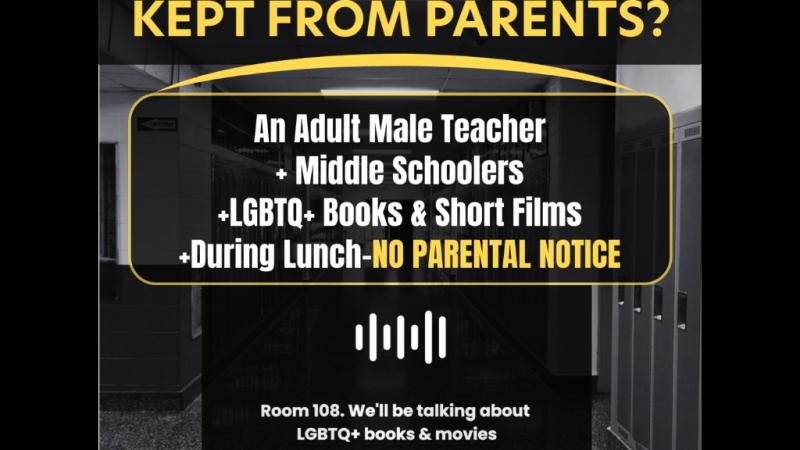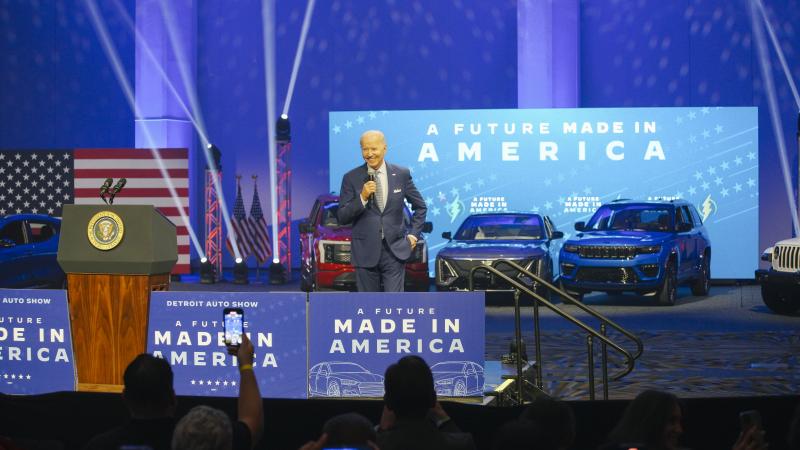CDC positioning to escape blame for school COVID vax mandates ahead of immunization schedule update
National Academy of Medicine member blasts CDC's advisory committee as "kangaroo court" limited to "official card-carrying vaccine fanatic[s]" who don't require clinical evidence. Florida surgeon general promises "nothing changes" in the state regardless of federal vote.
An influential CDC advisory panel could vote Thursday to add COVID-19 vaccines to routine immunization schedules, giving the green light to school districts to require COVID vaccination — and perhaps annual boosters — as a condition of enrolling.
The Oct. 20 agenda for the agency's Advisory Committee on Immunization Practices (ACIP) shows it will discuss the "2023 child and adolescent schedule revisions" and "2022 adult schedule revisions" in the morning and then vote in the afternoon on whether to adopt them, in spite of the fact that COVID vaccines haven't been fully approved under age 12.
The advisers voted 15-0 Wednesday afternoon to add COVID vaccines to the Vaccines for Children program, which pays for ACIP-recommended vaccines for children in low-income families.
Georgetown Law global health law professor Lawrence Gostin predicted ACIP would add COVID vaccines to the immunization schedules, which "means most states will either rec[ommend] or require COVID vaccines for school entry."
ACIP recommendations aren't binding on states, and inclusion on the ACIP schedule is not a proxy for state mandates. The CDC-funded Immunize.org shows that only a handful of states have flu and HPV mandates, for example.
More than half of the states reference ACIP recommendations in their immunization laws as of January 2021, however, according to the University of Illinois Chicago's Policy, Practice and Prevention Research Center.
Through its public messaging that all ages stay "up to date" with COVID immunizations, the CDC is now going further than Moderna itself.
CEO Stephane Bancel told the Yahoo Finance All Markets Summit that he thinks only people over 50 or high-risk will need annual COVID boosters. He questioned why healthy 25-year-olds would need them.
The CDC is keenly aware it could be blamed for a potential new round of school vaccine mandates. "States establish vaccine requirements for school children, not ACIP or CDC," the agency tweeted Wednesday, responding to a video by Fox News host Tucker Carlson that claims ACIP approval "would make the vax mandatory for kids to attend school."
But in a slide shown during the ACIP meeting, the CDC says that adding COVID vaccines to the childhood immunization schedule "is an important step toward inclusion of COVID-19 vaccines in routine vaccination program [sic]."
COVID vaccines would be the first "added to the child immunization schedule without solid clinical evidence that it reduces disease significantly in the community," Johns Hopkins medical professor and National Academy of Medicine member Marty Makary told Carlson. "My concern is that some schools may blindly accept this."
Makary called ACIP a "kangaroo court" whose membership is limited to "official card-carrying vaccine fanatic[s]" and again challenged White House COVID adviser Ashish Jha to turn over the unreleased data that Jha claims shows COVID vaccines reduce severe outcomes in children.
Such a move by ACIP "will do more in a single day to erode routine vaccination than 25 years of a devoted, irrational movement" by conflating marginal with crucial childhood vaccinations, University of California San Francisco epidemiologist Vinay Prasad tweeted.
It's no mystery why ACIP, but not the FDA's Vaccines and Related Biological Products Advisory Committee, was allowed to review the immunization schedule changes, Prasad said: VRBPAC "has more people who will push back on their deranged policies."
Florida Surgeon General Joseph Ladapo pledged Tuesday that "nothing changes" in the Sunshine State regardless of the ACIP vote. "COVID mandates are NOT allowed in FL, NOT pushed into schools, & I continue to recommend against them for healthy kids," he tweeted.
The real power of the recommendations is that they tend to be adopted quickly by blue jurisdictions. That seems less likely, however, with the possible addition of COVID vaccines to the childhood vaccine schedule.
In the four months since COVID vaccines received emergency use authorization for children ages 6 months-4 years, the lowest-risk age group for COVID complications, only 9% had received even one dose, according to the American Academy of Pediatrics' analysis of CDC data as of Oct. 12.
By the same 17-week mark after EUA, older age groups had much higher rates. Among 5-11 year-olds, 38% have taken one dose and 31% two doses, rising to 67% and 58% for 12-17 year-olds, an age range at elevated risk of post-vaccination heart inflammation according to a recent CDC study.
Stanford medical professor John Ioannidis, who has routinely studied COVID infection fatality rates (IFR) since early in the pandemic, published his latest estimates last week.
His team at the Meta-Research Innovation Center reviewed 40 national seroprevalence studies from 38 countries with pre-vaccination seroprevalence data. They determined median IFRs of 0.0003% for 0-19 years, 0.003% for 20-29 and 0.011% for 30-39, according to the preprint, which has not been peer-reviewed.
The IFR jumps substantially between ages 50-59 (0.129%) and 60-69 (0.501%). "The current analysis suggests a much lower pre-vaccination IFR in non-elderly populations than previously suggested," the preprint said.
Some observers suspect the immunization schedule vote is intended primarily to protect vaccine makers from legal liability rather than boost COVID vaccine uptake in children.
The vote "is both irrelevant and embarrassing since it throws a spotlight on the way parents have rejected the shots for kids," former New York Times drug industry reporter Alex Berenson wrote in his newsletter. New school vaccine mandates "would lead to massive parental pushback and quite likely destroy their public education systems."
But since vaccine makers will lose their liability shields once the administration stops extending the COVID public health emergency, the "solution is adding the mRNA vaccines to the childhood schedule" and thus the federal Vaccine Injury Compensation Program, he wrote.
Revising the immunization schedule allows "Pfizer and Moderna to finally bring an FDA approved shot to the market without opening itself up to lawsuits" while earning "another windfall" from the school vaccine mandates that follow ACIP approval, investigative journalist Jordan Schachtel wrote.
The vaccine makers are also facing new scrutiny for their representations of their products. Pfizer's Twitter account implied in January 2021 that its vaccine would stop transmission, contradicting an executive's recent testimony in the European Parliament.
"It was abundantly clear that the vaccine trials did not include transmission as a primary or secondary endpoint," so the Pfizer tweet "does appear to be violating US law around misleading information," Prasad tweeted.
Video clips that show Pfizer CEO Albert Bourla claiming that its vaccine stops transmission are making the rounds. "If they don't vaccinate, they will become the weak link that will allow this virus to replicate," he told the "Today Show" in September 2020.
This May, several months after Bourla admitted its vaccine had hit a wall with Omicron, Bourla told a World Economic Forum event: "You vaccinate not only for yourself, you vaccinate also to protect society, particularly to protect those that you love the most."
Even in Moderna CEO Bancel's recent interview that questioned one-size-fits-all boosters, he implied that Moderna's vaccine stops transmission. People who aren't at high risk themselves may want to vaccinate "to protect other people," he said.
The Facts Inside Our Reporter's Notebook
Videos
Links
- Advisory Committee on Immunization Practices
- add COVID-19 vaccines to routine immunization schedules
- ACIP's Oct. 20 agenda
- COVID vaccines haven't been fully approved under age 12
- Vaccines for Children
- Lawrence Gostin predicted ACIP would add
- only a handful of states have flu and HPV mandates
- University of Illinois Chicago's Policy, Practice and Prevention Research Center
- all ages stay "up to date"
- CEO Stephane Bancel told the Yahoo Finance All Markets Summit
- agency tweeted Wednesday
- video by Fox News host Tucker Carlson
- slide shown during the ACIP meeting
- Vinay Prasad tweeted
- VRBPAC "has more people who will push back on their deranged policies."
- Joseph Ladapo pledged
- emergency use authorization for children 6 months to age 5
- American Academy of Pediatrics' analysis of CDC data
- elevated risk of post-vaccination heart inflammation
- preprint, which has not been peer-reviewed
- Alex Berenson wrote in his newsletter
- investigative journalist Jordan Schachtel
- January 2021 that its vaccine would stop transmission
- executive's recent testimony in the European Parliament
- Prasad tweeted
- he told the Today Show
- Bourla told a World Economic Forum event














